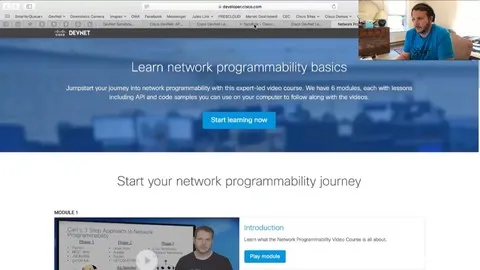
Android Performance 
Android developers must prioritize performance to ensure a positive user experience. This guide provides tips on how to identify and address bottlenecks in Android applications, helping developers optimize their apps for optimal performance. ▼
ADVERTISEMENT
Course Feature
![]() Cost:
Cost:
Free
![]() Provider:
Provider:
Udacity
![]() Certificate:
Certificate:
No Information
![]() Language:
Language:
English
![]() Start Date:
Start Date:
On-Demand
Course Overview
❗The content presented here is sourced directly from Udacity platform. For comprehensive course details, including enrollment information, simply click on the 'Go to class' link on our website.
Updated in [March 06th, 2023]
This course, Android Performance, provides an overview of how to identify and diagnose performance problems in Android apps. Learners will gain an understanding of how program code and the Android platform interact, and how to use profiling tools to navigate to problematic code. By the end of the course, learners will be able to perform exploratory tests, run profiling tools, and design a plan of attack to mitigate poor performance.
[Applications]
After completing this course, participants should be able to apply the knowledge they have gained to identify and diagnose performance issues in their Android applications. They should be able to use profiling tools to navigate to problematic code and design a plan of attack to mitigate poor performance. Additionally, they should have a higher level of understanding about how program code and the Android platform interact, which will help them optimize for performance in the future.
[Career Paths]
1. Android Performance Engineer: Android Performance Engineers are responsible for ensuring that Android applications run smoothly and efficiently. They use a variety of tools and techniques to identify and diagnose performance issues, and then design and implement solutions to improve the performance of the application. As the demand for mobile applications continues to grow, the need for Android Performance Engineers is expected to increase.
2. Android Developer: Android Developers are responsible for creating and maintaining Android applications. They use a variety of programming languages and tools to develop applications that are optimized for performance and usability. As the demand for mobile applications continues to grow, the need for Android Developers is expected to increase.
3. Mobile Application Tester: Mobile Application Testers are responsible for testing mobile applications to ensure that they are functioning properly and meeting the requirements of the user. They use a variety of tools and techniques to identify and diagnose performance issues, and then design and implement solutions to improve the performance of the application. As the demand for mobile applications continues to grow, the need for Mobile Application Testers is expected to increase.
4. Mobile Application Security Analyst: Mobile Application Security Analysts are responsible for ensuring that mobile applications are secure and compliant with industry standards. They use a variety of tools and techniques to identify and diagnose security issues, and then design and implement solutions to improve the security of the application. As the demand for mobile applications continues to grow, the need for Mobile Application Security Analysts is expected to increase.
[Education Paths]
1. Bachelor of Science in Computer Science: This degree path provides a comprehensive understanding of computer science fundamentals, including programming, software engineering, and computer architecture. It also covers topics such as algorithms, data structures, and operating systems. With this degree, you will gain the skills necessary to develop and optimize Android applications for performance.
2. Master of Science in Mobile Computing: This degree path focuses on the development of mobile applications, including Android. It covers topics such as mobile application development, mobile operating systems, mobile security, and mobile networks. With this degree, you will gain the skills necessary to design and optimize Android applications for performance.
3. Master of Science in Software Engineering: This degree path focuses on the development of software applications, including Android. It covers topics such as software design, software architecture, software testing, and software development. With this degree, you will gain the skills necessary to develop and optimize Android applications for performance.
4. Master of Science in Artificial Intelligence: This degree path focuses on the development of artificial intelligence applications, including Android. It covers topics such as machine learning, natural language processing, and computer vision. With this degree, you will gain the skills necessary to develop and optimize Android applications for performance.
The development of mobile applications is a rapidly growing field, and the demand for skilled Android developers is increasing. With the right degree path, you can gain the skills necessary to develop and optimize Android applications for performance.
Course Provider

Provider Udacity's Stats at AZClass
Android Performance provides tips on how to identify and resolve Android application bottlenecks, helping developers optimize their applications for optimal performance. Learners gain a higher-level understanding of how program code and the Android platform interact. This will help them optimize performance in the future and make the application more efficient. Learners also learn how to identify and diagnose performance issues that affect application availability. They will be able to perform exploratory testing and run analysis tools to determine the root cause of problems.
Discussion and Reviews
0.0 (Based on 0 reviews)
Explore Similar Online Courses

Introduction to Financial Accounting: The Accounting Cycle

Net DevOps: Cisco Python Automation NETCONF SDN Docker

Python for Informatics: Exploring Information

Social Network Analysis

Introduction to Systematic Review and Meta-Analysis

The Analytics Edge

DCO042 - Python For Informatics

Causal Diagrams: Draw Your Assumptions Before Your Conclusions

Whole genome sequencing of bacterial genomes - tools and applications

Android Basics: Data Storage

Firebase in a Weekend: Android


Start your review of Android Performance